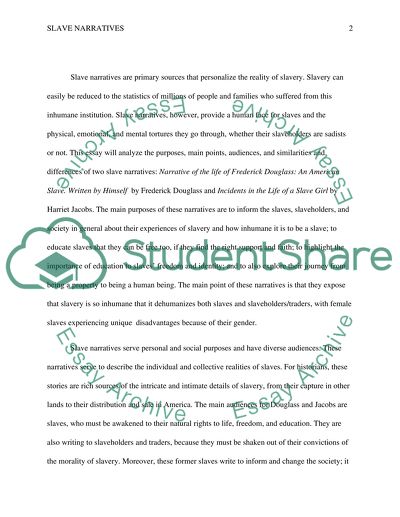Cite this document
(“Slave narratives of Douglass and Jacobs: The search for freedom and Essay”, n.d.)
Retrieved from https://studentshare.org/literature/1400940-essay
Retrieved from https://studentshare.org/literature/1400940-essay
(Slave Narratives of Douglass and Jacobs: The Search for Freedom and Essay)
https://studentshare.org/literature/1400940-essay.
https://studentshare.org/literature/1400940-essay.
“Slave Narratives of Douglass and Jacobs: The Search for Freedom and Essay”, n.d. https://studentshare.org/literature/1400940-essay.


